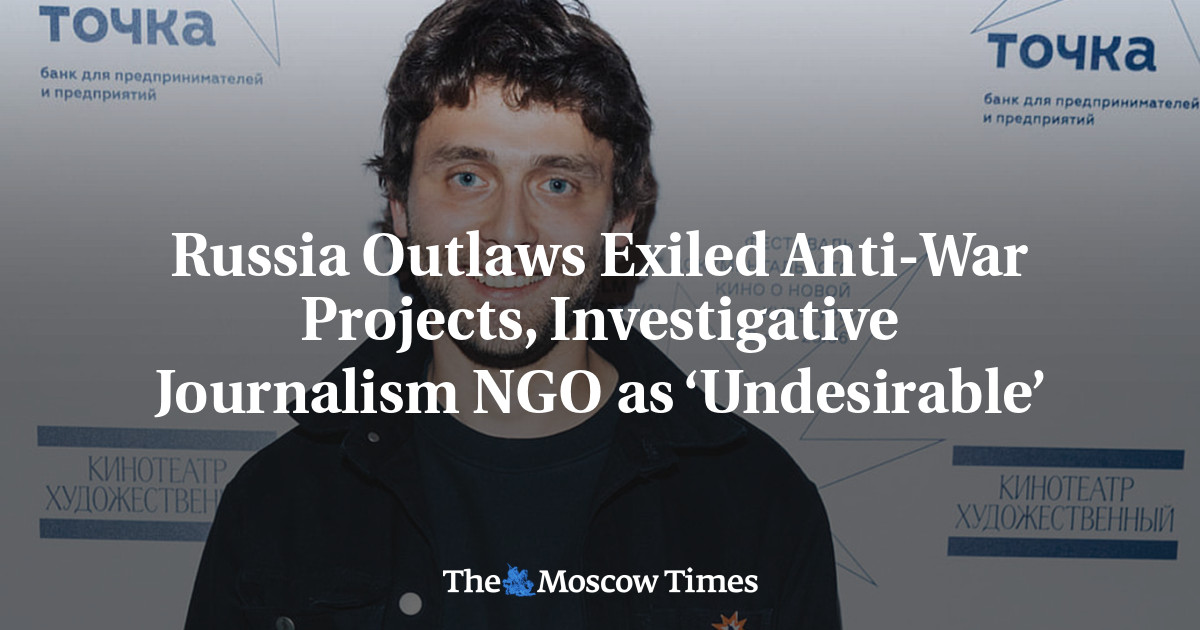
Russia’s Justice Ministry has added two anti-war support groups and an international investigative journalism nonprofit to its list of “undesirable” organizations, banning its activities and putting staff at risk of jail in Russia.
The U.S.-based Global Investigative Journalism Network (GJIN), the Britain-based True Russia Limited and Latvia-based Helpdesk Media Foundation have been included in Russia’s “undesirable” list with no explanations for why they have been blacklisted.
GJIN includes members who have published high-profile investigative reports on Russia and other countries and hosts knowledge-sharing conferences every two years.
True Russia was co-founded by exiled writer Boris Akunin, actor Mikhail Baryshnikov and economist Sergei Guriev, while exiled media publisher Ilya Krasilshchik founded Helpdesk Media. Both groups identify their mission as supporting those affected by Russia’s invasion of Ukraine. Russia’s Justice Ministry previously labeled True Russia a “foreign agent” in the spring of 2023.
Akunin (Grigory Chkhartishvili) is accused in Russia of spreading “fake news” about the Russian military and “justifying terrorism.” Russian booksellers have suspended sales of Akunin’s works and at least one publishing house halted printing and sale of his books.
Russian lawmakers are seeking to jail the Paris-based Guriev for life over his work on sanctions against Russia.
Krasilshchik was this summer sentenced to eight years in prison in absentia for spreading “fake news” about the Russian military over his criticism of the Ukraine invasion.
Organizations labeled “undesirable” must cease all operations inside Russia, and it is illegal for individuals and media outlets in Russia to republish or share their content.
The “undesirable” designation also places staff and members at risk of jail time.
Russia introduced its “undesirable” list in 2015 to crack down on foreign NGOs and ban Russians from working with or donating to them.
Russia has since used its law on “undesirable” organizations to target independent news outlets, human rights groups, environmental organizations and educational institutions.